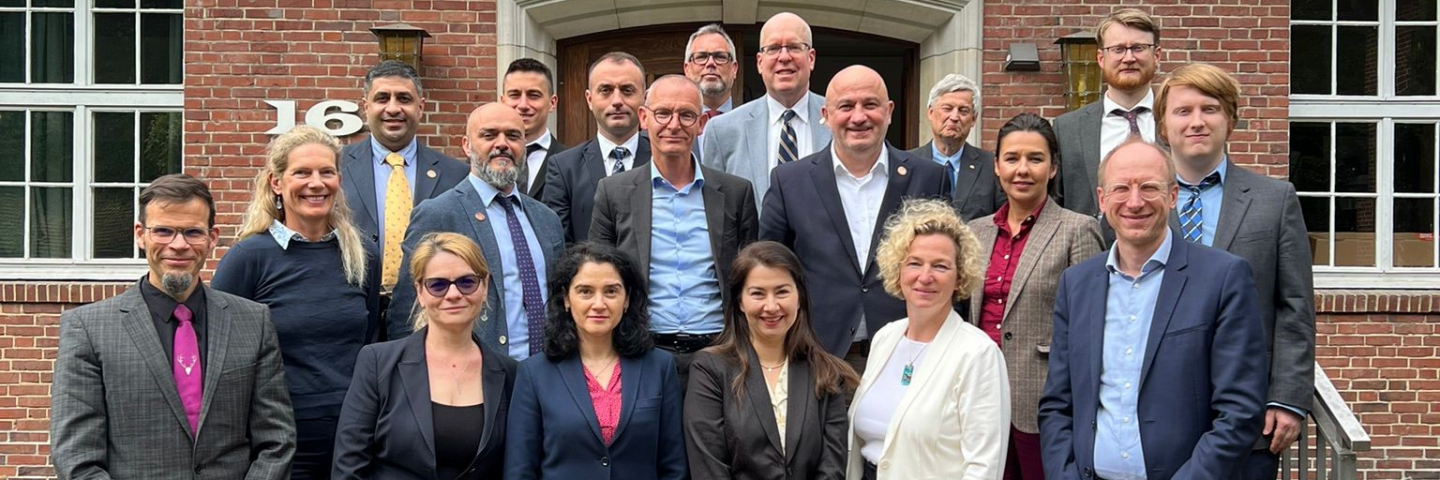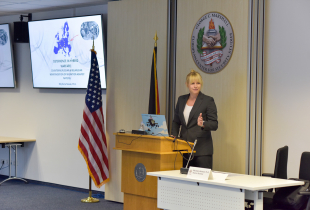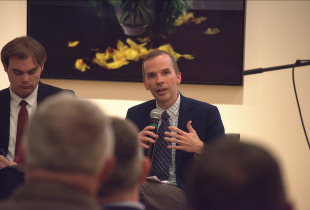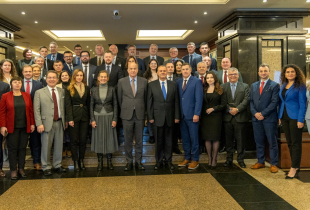
Global Power Shifts and Weaponization of Interdependence
By Olaf Garlich & Falk Tettweiler
Hosted by the Bundeswehr Command and Staff College in Hamburg, the Working Group on Emerging Security Challenges of the Partnership for Peace Consortium conducted a one-day workshop in Hamburg, Germany, June 1, on the topic of “weaponization of interdependence.”
Around 20 participants from nine countries, most of them alumni of the George C. Marshall European Center for Security Studies, came together to discuss the challenges of international interconnectedness and interdependence in times of increased strategic competition.
In the 20th and early 21st century, globalization and interdependence have been assessed as beneficial not only for the Western world but for all societies to greater or lesser extent, based on the assumption that interdependence would increase trust, stability, cooperative behavior and economic growth over time. However, in the light of the COVID-19 crisis, the aggressive war by Russia against Ukraine, and the rise of China, India, Brazil, and many other states, interdependence also reveals its downsides and vulnerabilities.
As Mark Leonard from the European Council on Foreign Relations said, “It is connectivity itself that drives us apart. It gives people the opportunity for conflict; reasons to fight each other; and a lot of weapons with which to inflict harm.”
Rear Adm. Christian Bock, Deputy Commander of the Bundeswehr Command and Staff College, opened the workshop with welcome remarks. Session one explored international power shifts and engaged the participants with the analytical and terminological conception of the “weaponization and interdependence.” The second session analyzed three case studies: the implications of energy dependence on Russia by Moldova; the weaponization of food and energy in Ukraine; and the influence of Russia in social media in East and South East Europe. The third session took a closer look at weaponization of interdependence at the international level, with particular emphasis on the international banking system and foreign direct investment. The final session identified some key takeaways as well as questions that deserve further research:
- Today, “globalization” meets “great power competition.” While international network analysis still shows three main hubs (Europe, North America, China), this encounter has implications and is being played out in the whole world.
- To mitigate the threat of becoming the target of weaponized interdependence, international cooperation has to increase in scope and depth.
- There are limits to the weaponization thesis; not every interdependent relationship is subject to this risk. The power asymmetries involved in relationships need to be studied in more detail.
- To what extent do democratic and non-democratic countries differ in their management of interdependence?
- How does weaponized interdependence affect EU and NATO partners and what can be done to support and strengthen their resilience?
The workshop greatly benefitted from the lively engagement of its participants and highlighted the importance of the Marshall Center’s alumni network.


